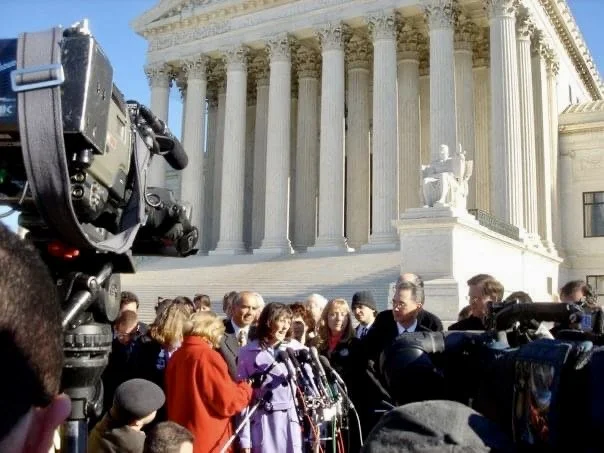Angel Raich is a community leader and national advocate whose work has made history, brought change, and advanced justice. For that, this brave woman has risked everything. Raich's mission is to serve as a voice for the voiceless, those left behind by society because of disability, poverty, or a medical condition. At the heart of her story is a simple premise: Every person matters. She has used her life as a platform to tell the stories of countless others and to attempt to right the wrongs done to them.
For many years, Angel has used her sharp legal brain, strategic thinking, and unmatched work ethic to frame the arguments that win rights for the sick, disabled, and disadvantaged. She has run her professional life around high-stakes litigation support, public policy work, and community advocacy; around a sinewy path that, much to our benefit, keeps her close to the sick, disabled, and disadvantaged. Along the way, she has led in federal, state, and local nonprofits. Angel has uncrossed some very tangled crosses in the legal regulatory mazes. She has worked alongside attorneys on fragile family law cases that are hard to win. In jobs that few have the stamina for, she has led investigations that uncover elder financial abuse, housing rights violations, and disability discrimination.
Angel is a fighter and winner of a cancer battle who survived with an elbow prosthetic after limb-salvage surgery. She has proven herself a capable candidate for the U.S. House and is valued for her unwavering, firm stance on issues of justice and integrity. In a land where life, limb, liberty, and justice are supposedly guaranteed, nobody should have to fight Angel's kind of battle.
In 2024, Angel journeyed to Bali on a life-changing trip, where she became a yoga instructor. She fully embraced the island's spiritual practices and its breathtaking beauty, taking in every moment. En route to the profound healing that she was so passionate about, Angel had an epiphany that she shared with us when she called in for an interview. Her true calling, she realized, is to direct and guide others. After covering the 'basics' of both the law (she is quite proficient, as we learned in the interview) and yoga, Angel now serves as a bridge between these two worlds.
Almost 60, Angel is today pursuing her Bachelor of Arts in Criminology and Criminal Justice, alongside her Associate of Arts in Human Resources. She is in a new, vibrant chapter that is building on an incredible history of advocacy and law. She holds audacious goals for herself that extend well beyond mere graduation. She aims to engage with public institutions at the state level, using her legal smarts, investigatory skills, and leadership chops to do inarguably good things for the inarguably ordinary and vulnerable among us. She has her sights set on enforcement and compliance institutions—those responsible for ensuring that the laws on the books are more or less the same as the laws in real life—so that those laws protect folks like women and children, who in many circumstances are more or less lawfully protected (Sharon Reed).
Angel's story is one of boldness and unwavering intent. She has demonstrated that dreams can come true late in life. Most impressive of all, perhaps, and what makes her story here most noteworthy, is that she has proven women can succeed in roles traditionally denied them by naysayers, even when those onlookers seem convinced their words ought to hold some sway.



